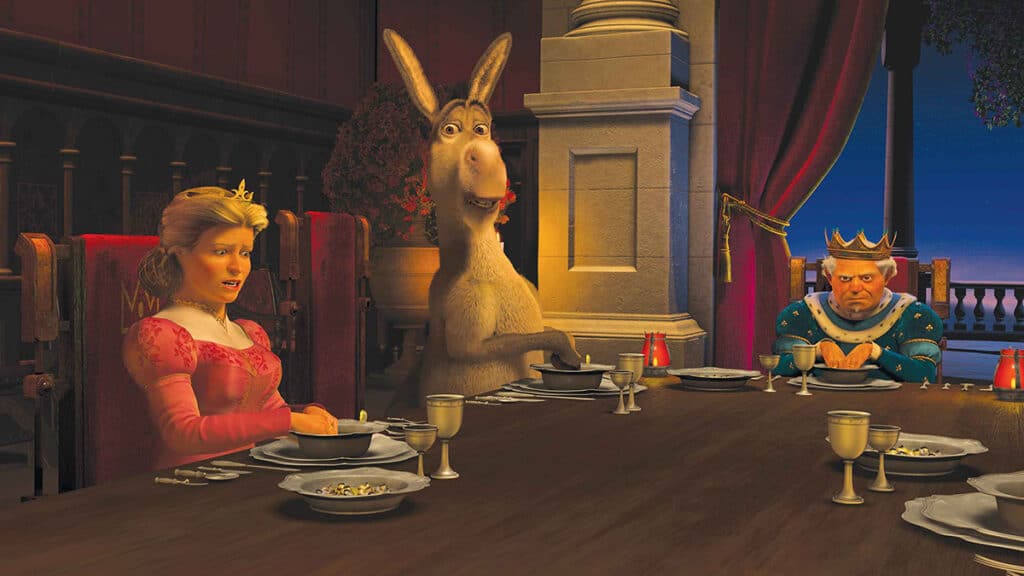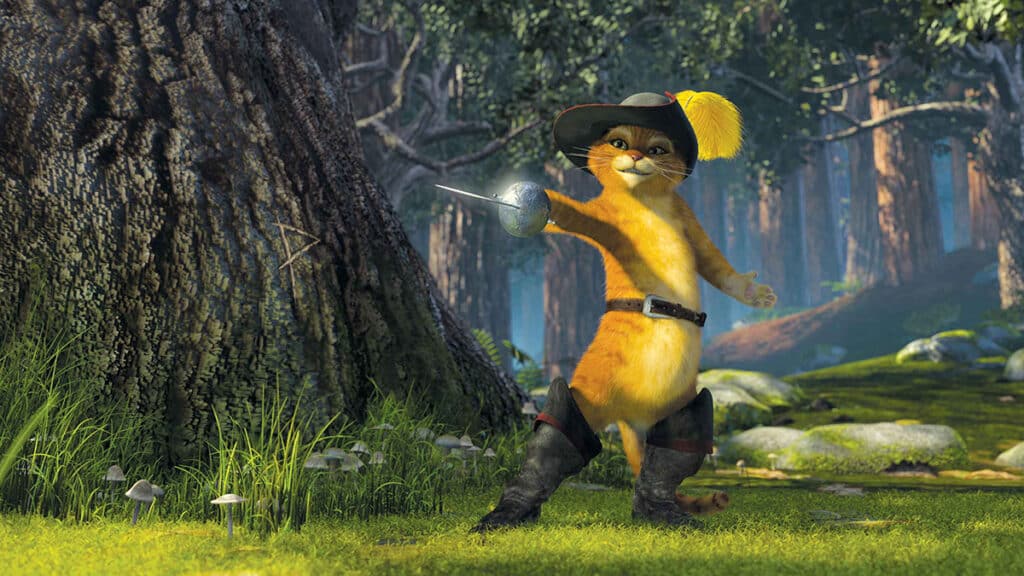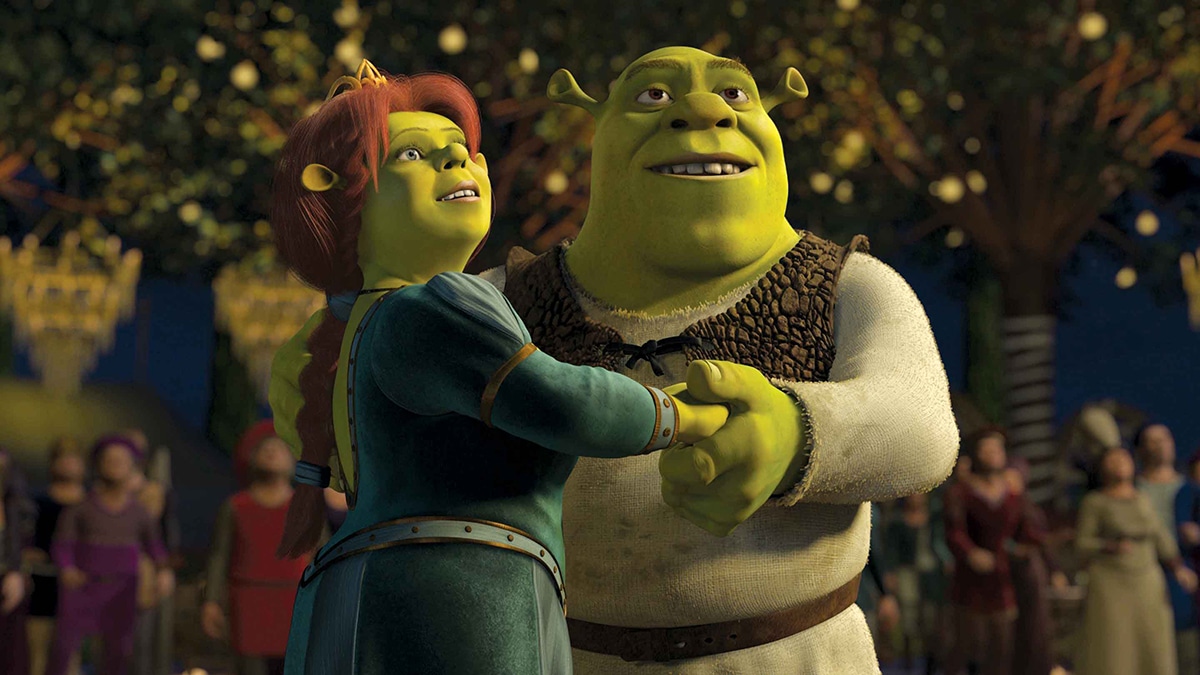From the moment Shrek was released, it’s been breaking important barriers in the industry. Not only did it win the first-ever Academy Award for Best Animated Feature in 2002 but it also explored important themes of love, beauty standards, friendship, racism, xenophobia, and community – arguably radical ideas for an early 2000s movie to introduce to children. Its themes and success allowed BIPOC audiences to personally connect with the material. Certainly in the Latinx community, we know what it’s like to be the subjects of violence, isolation, segregation, and oppression, which nearly all of the major characters experience.
It came as no surprise, then, that the Spanish-language dub for Latin American audiences was incredibly successful too, in large part because of the culturally specific jokes that are arguably way funnier than their English-language counterparts.
That is no accident. When Dreamworks hired Mexican comedian Eugenio Derbez to play Donkey in the Spanish dub, he actually adapted and rewrote the scripts for Shrek and Shrek 2 to include specific Latin American colloquialisms, wordplay, and references to pop culture to make it more appealing to audiences in the region. By hiring such an important figure in Latin American cinema and engaging in a process of localization rather than a straight translation, Dreamworks truly made the series a love letter to Latin America and her descendants across the world.

Granted, in the English-speaking world, Shrek has left behind a significant legacy, spawning countless memes and a loyal, if ironic, fandom. But it’s become widely accepted that the Spanish versions are vastly superior. However, when I recently went to buy tickets for the theatrical re-release of Shrek 2 in celebration of its 20th anniversary on April 12, I couldn’t find the Spanish dub anywhere. For me and so many others, that is a huge disappointment.
Because the movie came out in 2004 when I was only four years old, I don’t remember seeing it in theaters. In the years since, I’ve only been able to watch it at home through DVDs and streaming options, which aren’t anywhere near the same experience. Plus, with the rising prices of tickets and concessions, it’s a rarity for me to go to the theaters anymore unless the movie feels worth it.
Plus, the Spanish dubs of the movie are nearly impossible to find online in the US, so it’s not like I could watch them at home if I wanted to. Across Prime Video, Peacock, YouTube, and AppleTV+, they only offer the option for English-language audio and subtitles. I’ve only ever been able to find a few bootleg clips, speaking volumes about accessibility issues and the value of Latinx viewers in the eyes of the entertainment industry.
For me, not having the option to watch the Spanish dub in theaters, let alone a version with Spanish subtitles during such an important cultural moment, is more than a mere oversight; it’s also a huge financial loss. In 2019, our community was the driving force behind 29% of box office sales in the US, essentially contributing $2.9 billion to the national economy. We want to watch movies and we’ve proven, time and time again, that we especially love watching films in our languages.
But beyond the numbers game, this could’ve been an important moment to celebrate a dub that has been so beloved and brings back a different type of nostalgia for our community. I still remember watching the Spanish version with my cousins in Mexico as a teenager and laughing at the jokes that celebrated our lexicon and brand of humor. I just about die every time I watch the scene between Gingy and Lord Farquad talking about “Pin Pon” in Shrek and the scene of Donkey singing his way through the road trip at the beginning of Shrek 2. And in every Shrek dub, I love how exaggerated and dramatic the voice actors are in their line delivery to elevate the humor and make it feel like a telenovela. Honestly, compared to the original, the Spanish version feels like a different project – in the best way.

Voice actors are already underappreciated in the industry, especially international voice actors, and this could’ve been a wonderful opportunity to celebrate Derbez and the rest of the cast – which included actors Alfonso Obregón Inclán as Shrek, Dulce Guerrero as Fiona, and Jesús Barrero as Gingy – for making the dub as successful as it was. So why isn’t it being brought back to theaters, too?
Perhaps the worst part is that this re-release is a nationwide promotion exclusive to the US, meaning that Latin American fans won’t be able to see it either, regardless of whether or not a translation was available. While they might have an easier time accessing the movies in Spanish at home, it’s still a huge slap in the face to the community – both as moviegoers and as actors – that has made this franchise so financially and culturally lucrative.
We already know that the Latinx community isn’t adequately represented on-screen in mainstream media. But it’s even worse when those same issues carry over to how we as multilingual speakers watch movies in the first place. I shouldn’t have to install a VPN to pretend I’m in a different country to watch a version of a movie I love just because it’s supposedly “niche.” I shouldn’t have to wait years to watch a movie in theaters, only to be disappointed by its lack of accessibility options. This attempt to erase our contributions to the success of this franchise has only convinced me more that, especially after two decades, it’s about time we got our flowers.

